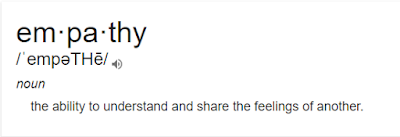You can sway a thousand men by appealing to their prejudices quicker than you can convince one man by logic. #Ponder #PayAttention— Sidney Rice (@sidneyrice) November 10, 2016
Trump won because logic loses to emotion every time. Sales 101 begins with finding out what people want and then promising you can deliver it, even if it means promising things you can't deliver. This is, after all, why Bernie Sanders was so popular and is now being widely proclaimed as the candidate who stood a better chance against Trump. Ah, be careful. Your brain may be telling you, "Bernie was too far to the Left.... His proposals are unrealistic, unaffordable, naive..." Stop those logical thoughts at once. Bernie knew that people are stupid and embraced it. Promise them everything and the people will love you. Put aside logical coherence. Don't worry about truth. Never mind facts. If you want to win again, tell the people what they want to hear. Appeal to their prejudices and greed. Don't worry, once elected, you can do whatever you want.













